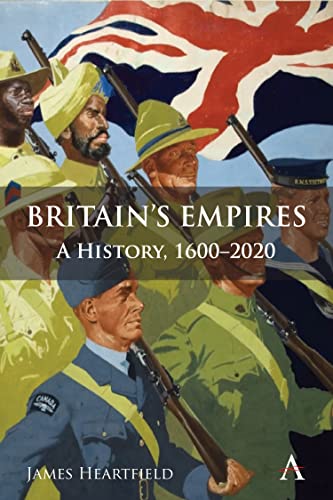At Spiked, James Heartfield discusses the changing attitudes toward British imperial history:
Renewed interest in the history of the British Empire has generated a great amount of fascinating research and reflection. Over the past decade or more, there have been many books written about the empire – popular, academic, polemical and picaresque. There has been Akala’s Natives, William Dalrymple’s The Anarchy, Shashi Tharoor’s Inglorious Empire and Caroline Elkins’ Legacy of Violence, to name just a few.
Today’s approach to the British Empire is invariably critical – often stridently so. It marks a change to the attitude widely held half a century ago, when books on the empire tended to be elegiac farewells, like Paul Scott’s novel, The Jewel in the Crown, or Jan Morris’s Pax Britannica. Today’s critical approach to the empire is certainly a far cry from that which prevailed for a brief moment around the time that Margaret Thatcher was taking back the Falkland Islands. Back then, there was even an attempt at the moral rehabilitation of the empire.
[…]
But there are downsides to the self-excoriating criticism of Britain’s past. Often this approach to history turns into a debilitating exercise in self-loathing, an act of guilt-mongering. Many others have pointed out the limitations of this kind of morbid raking over the coals. But what is just as worrying is that the more we posture over Britain’s colonial past, the less we seem to understand it.
The moralistic framework in which we teach and discuss colonial history reduces our understanding to a single note of complaint. Hence, many historians today now write as if they have to make a case against the empire. This is just kicking at an open door. The empire has very few champions today. And the great British public is certainly not nostalgic for its return, despite some commentators arguing otherwise. Indeed, an ever growing majority think that the empire was a bad thing.
There is another problem with this approach to Britain’s colonial past. It situates readers outside of history. It encourages them to adopt a moralistic rather than historical approach to colonialism. They can do little more than judge the empire as evil. And in doing so, it flattens out the different periods of the colonial project into one long uniform timeline of subjugation. Collapsing distinct periods and stages together leads to a great confusion. For instance, in many accounts, there appears to be little difference between 18th-century British colonialism, which was dominated by slave trading, and the British colonialism of the late 19th century, which was marked by anti-slavery. It is important not to reduce the long history of the empire to a single motivating cause, be it the “English genius” of earlier celebratory accounts or today’s contention that it was all driven by “white supremacy”.
I seek to address these problems in my new book, Britain’s Empires: A History, 1600-2020. There I draw out the differences between the distinctive stages of Britain’s colonial history.
To do this, it is necessary to step back from moral judgement, which foregrounds our attitudes today, in order to try to understand what motivated people back then. That often means looking at a society’s changing social and economic organisation. Britain’s Empires is a history of the empire that holds on to a sense of historical change, and tries to understand the interrelation of its component parts.
The distinct eras of British colonialism are: the Old Colonialism (1600 to 1776); the Empire of Free Trade (1776-1870); the New Colonialism (1870-1945); and the period of decolonisation during the Cold War era (1946-1989). Britain’s Empires ends with an account of the “humanitarian imperialism” of the 1990s up until the present day. This periodisation aims to reflect the objective moments of transition.




